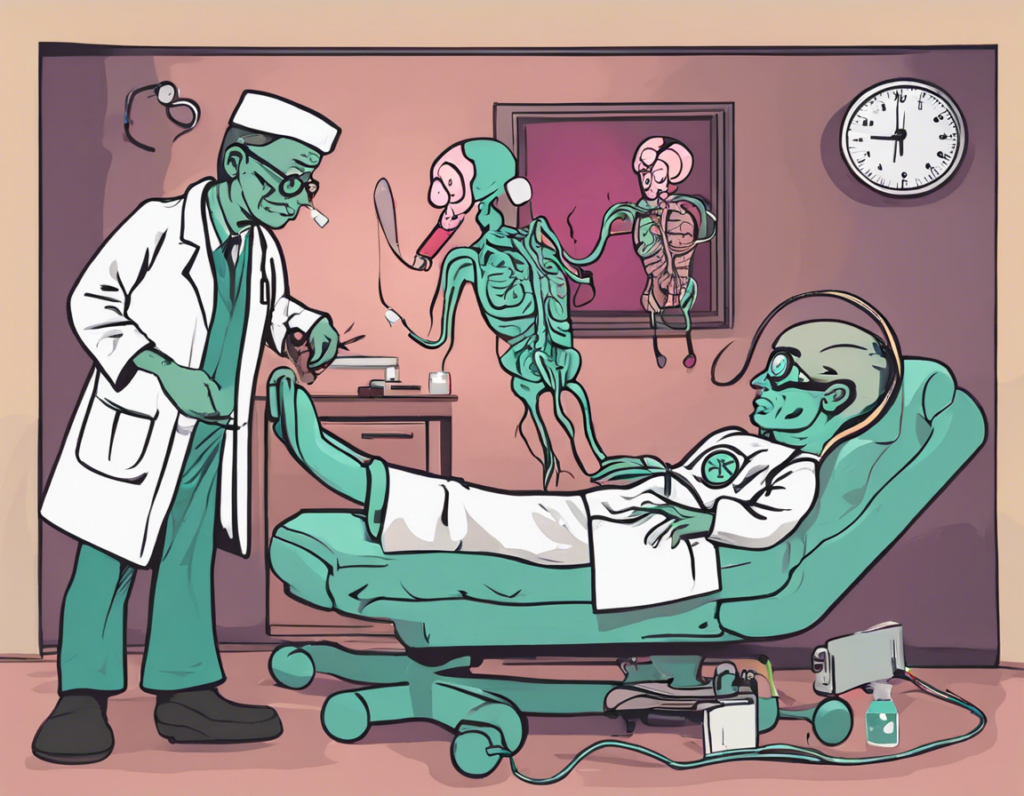The path to becoming a doctor is often praised as noble, prestigious, and intellectually stimulating. However, the reality is far from glamorous – the grueling years of education, demanding clinical rotations, and competitive residency placements can take a toll on even the most driven individuals. The journey from aspiring doctor to seasoned physician is fraught with challenges that can leave many feeling overwhelmed and burnt out. This phenomenon, coined “Aspiring Doctor Brain Dead,” has garnered attention in recent years as medical students and residents struggle to navigate the pressures of the healthcare system. In this comprehensive article, we will delve into the complexities of the Aspiring Doctor Brain Dead mystery, exploring its causes, consequences, and potential solutions.
The Rise of Aspiring Doctor Brain Dead Syndrome
The term Aspiring Doctor Brain Dead syndrome refers to the state of mental and emotional exhaustion experienced by medical students and residents. This phenomenon is the result of a combination of factors that contribute to high levels of stress and burnout within the medical education system.
Causes of Aspiring Doctor Brain Dead Syndrome
-
High Academic Pressure: The rigorous academic curriculum, demanding exams, and high stakes of medical education can create immense pressure on aspiring doctors.
-
Long Hours and Sleep Deprivation: Medical training often requires long work hours, overnight shifts, and erratic schedules, leading to chronic sleep deprivation and exhaustion.
-
Emotional Stress: Dealing with life-and-death situations, patient suffering, and ethical dilemmas can take a significant toll on the emotional well-being of medical students and residents.
-
Lack of Support: A competitive environment, limited mentorship, and lack of mental health resources can exacerbate feelings of isolation and burnout among aspiring doctors.
The Consequences of Aspiring Doctor Brain Dead Syndrome
The Aspiring Doctor Brain Dead syndrome can have profound consequences on the well-being of medical trainees and, ultimately, on patient care. Some of the most common repercussions include:
-
Decreased Empathy: Chronic stress and burnout can lead to a decline in empathy and compassion towards patients, impacting the quality of care provided.
-
Medical Errors: Exhaustion and cognitive overload can impair decision-making abilities, leading to an increased risk of medical errors and adverse outcomes.
-
Mental Health Issues: The prolonged exposure to stress and emotional strain can result in anxiety, depression, and other mental health disorders among medical students and residents.
-
Attrition Rates: Some aspiring doctors may choose to leave the medical field altogether due to burnout, further exacerbating the physician shortage crisis.
Overcoming Aspiring Doctor Brain Dead Syndrome
While the challenges of medical training are significant, there are steps that aspiring doctors can take to mitigate the effects of Aspiring Doctor Brain Dead syndrome and cultivate resilience. Some strategies include:
-
Self-Care: Prioritize self-care activities such as regular exercise, mindfulness practices, adequate sleep, and healthy nutrition to support overall well-being.
-
Seeking Support: Build a strong support network of peers, mentors, and mental health professionals to provide guidance, encouragement, and resources during challenging times.
-
Setting Boundaries: Learn to set boundaries, prioritize tasks, and delegate responsibilities to avoid burnout and overwhelm.
-
Mindfulness and Reflection: Incorporate mindfulness techniques, reflective practices, and downtime to foster emotional resilience and prevent compassion fatigue.
-
Advocating for Change: Advocate for systemic changes in medical education, such as increased access to mental health resources, improved work-hour regulations, and wellness programs to promote a healthier learning environment.
Frequently Asked Questions (FAQs) about Aspiring Doctor Brain Dead Syndrome
- What are the early signs of Aspiring Doctor Brain Dead syndrome?
-
Early signs may include chronic fatigue, decreased motivation, irritability, and feelings of hopelessness.
-
How common is burnout among medical students and residents?
-
Burnout is prevalent among medical trainees, with studies reporting rates as high as 50-80%.
-
Can burnout in medical school or residency affect patient care?
-
Yes, burnout can impact patient care by compromising empathy, increasing medical errors, and reducing overall quality of care.
-
What resources are available for aspiring doctors struggling with burnout?
-
Many medical schools and residency programs offer mental health services, counseling, and wellness initiatives to support students and residents.
-
Is it possible to recover from Aspiring Doctor Brain Dead syndrome?
- With proper support, self-care practices, and resilience-building strategies, aspiring doctors can recover from burnout and regain a sense of well-being.
In conclusion, the Aspiring Doctor Brain Dead syndrome sheds light on the challenges and complexities of medical training. By recognizing the causes, consequences, and potential solutions to this phenomenon, aspiring doctors can better navigate the demands of the healthcare system and cultivate a fulfilling and sustainable career in medicine. Remember, taking care of your well-being is not a luxury but a necessity for long-term success in the medical profession.
